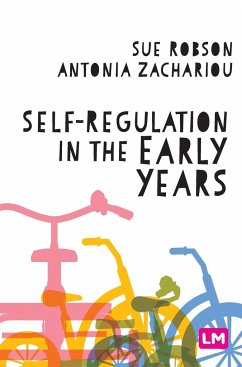This book supports students of Early Childhood Studies, Early Years and related disciplines to understand self-regulation in the early years. It explores what self-regulation is and includes evidence from cognitive, developmental and behavioural psychology and neuroscience. It asks why self-regulation is so central for children and why it is so important for practitioners to support and develop it in young children.
The book explores how self-regulation underpins much of children s development, including social, emotional and cognitive development. Key contexts for self-regulation, in particular aspects such as play and talk, are covered. This book supports students to:
- know why self-regulation matters
- understand why self-regulation is increasingly evident in policy and curricular around the world
- focus on social, emotional and behavioural aspects of self-regulation
- explore the importance of relationships in self-regulation between children and adults and between children themselves
- effectively observe and document self-regularion
The book explores how self-regulation underpins much of children s development, including social, emotional and cognitive development. Key contexts for self-regulation, in particular aspects such as play and talk, are covered. This book supports students to:
- know why self-regulation matters
- understand why self-regulation is increasingly evident in policy and curricular around the world
- focus on social, emotional and behavioural aspects of self-regulation
- explore the importance of relationships in self-regulation between children and adults and between children themselves
- effectively observe and document self-regularion

